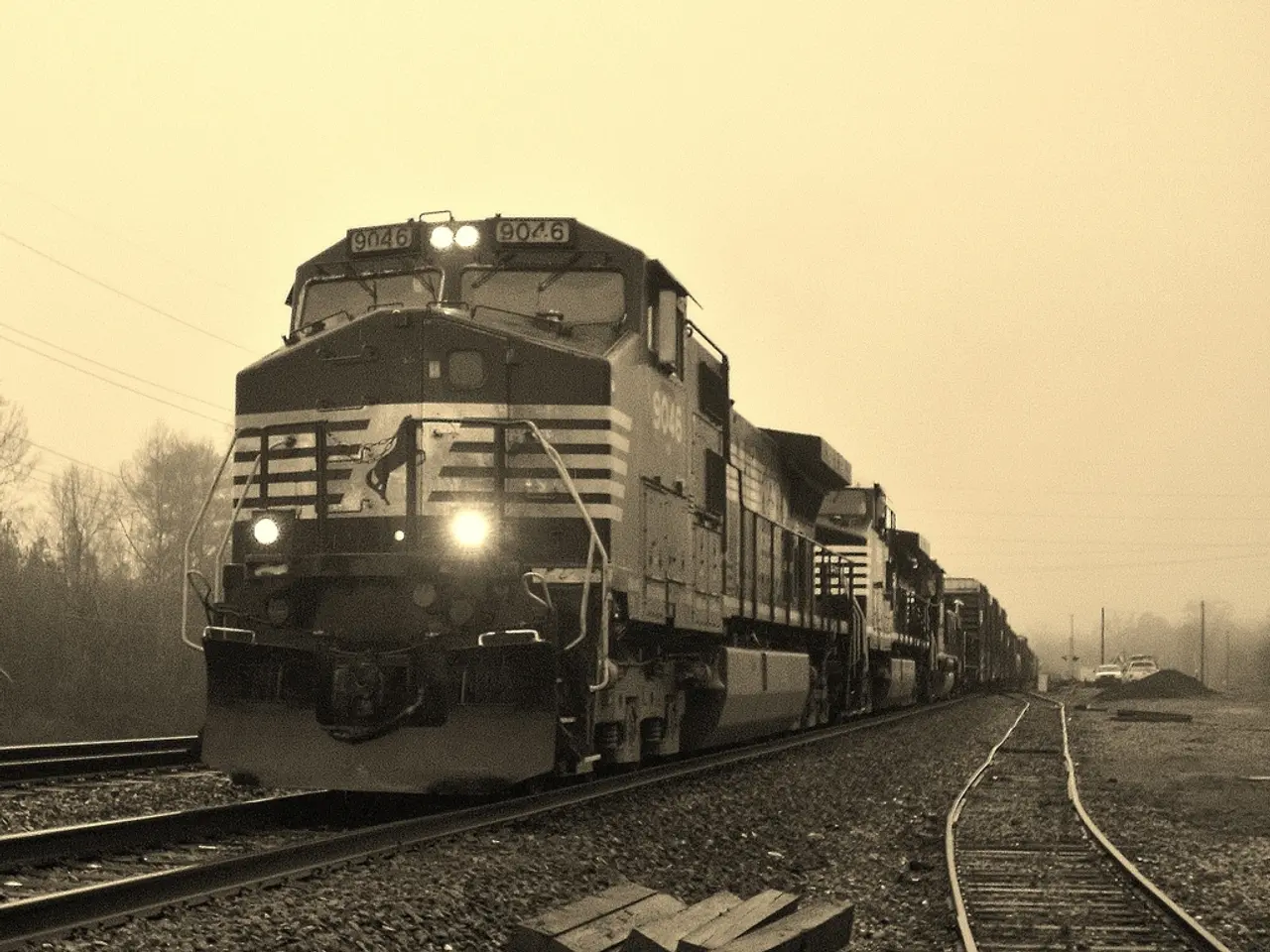Inadequate Funding Threatens Completion of Fresh Railway Infrastructure Developments
=============================================================================
The German rail sector is pushing for investments in the existing network and new routes to enhance punctuality and accommodate growing demand, particularly focusing on key projects such as the modernization of the Berlin-Hamburg line and the new line between Frankfurt and Mannheim.
Dirk Flege, CEO of Allianz pro Schiene, and Neele Wesseln, CEO of the freight railways, have emphasized the need for the federal government to invest in these projects, which could cost billions but have not been budgeted yet. The budget negotiations for 2025 and 2026 and the financial plan are currently in the parliamentary procedure, and speculation about individual projects is premature until the budget has been passed.
One of the critical projects is the modernization of the Berlin-Hamburg line, which started in 2025 and is planned for completion by April 30, 2026. This modernization involves extensive upgrades to track, switches, overhead wires, stations, and control technology. Other corridor modernizations, including the planned new line Frankfurt-Mannheim, have been extended to 2036 to avoid simultaneous closures and capacity overload.
The German government's Federal Rail Infrastructure Extension Act amendment in 2024 enabled additional government funding for maintenance, alleviating some budget pressures but not fully closing the gap. However, an investment gap of at least €215.7 billion in the municipal sector alone highlights that budget constraints remain a challenge for overall infrastructure investment, including rail.
Despite these challenges, key projects are progressing with government support and adjusted plans to mitigate the risk of major delays or suspension. For instance, the scheduled launch for December 2025 of new high-speed trains (e.g., ICE L) between Berlin and Cologne appears to be on track and supported by procurement plans.
However, not all projects are without controversy. A new route from Hamburg to Hannover is being advocated for, but it faces opposition due to concerns about large-scale interventions in nature and landscape, increased noise, and regional opposition.
The Association of Freight Railways argues that new construction and expansion should not be played against existing preservation, or the network will remain too small for demand, and growth will take place on the road. Wesseln emphasizes the importance of projects that eliminate bottlenecks in the overall system and significantly increase capacity for both freight and passenger traffic.
In summary, while there are budgetary and sector capacity challenges necessitating timeline extensions and phased approaches, critical rail modernization and expansion projects in Germany are progressing with government support and adjusted plans to mitigate the risk of major delays or suspension. The process remains under active review and adjustment in coordination with the Federal Ministry for Transport and other stakeholders.
[1] Bundesministerium für Verkehr und digitale Infrastruktur (BMVI), Pressemitteilung, "Modernisierung der Bahnstrecke Berlin-Hamburg", 10.03.2023, https://www.bmvi.de/SharedDocs/Pressemitteilungen/DE/2023/2023-03-10-modernisierung-der-bahnstrecke-berlin-hamburg.html [2] Deutsche Bahn AG, Pressemitteilung, "Modernisierung der Bahnstrecke Berlin-Hamburg: Baubeginn für die Modernisierung der Bahnstrecke Berlin-Hamburg", 10.03.2023, https://www.deutschebahn.com/presse/pressemitteilungen/2023/modernisierung-der-bahnstrecke-berlin-hamburg-baubeginn-fuer-die-modernisierung-der-bahnstrecke-berlin-hamburg.html [3] Deutsche Bahn AG, Pressemitteilung, "Neue ICE-Linie ICE L: Start der Verkehre ab Dezember 2025 zwischen Berlin und Köln", 15.02.2023, https://www.deutschebahn.com/presse/pressemitteilungen/2023/neue-ice-linie-ice-l-start-der-verkehre-ab-dezember-2025-zwischen-berlin-und-koeln.html [4] Bundesministerium für Verkehr und digitale Infrastruktur (BMVI), Pressemitteilung, "Bundesregierung beschließt Änderungen zum Bundesbahninvestitionsgesetz", 15.02.2023, https://www.bmvi.de/SharedDocs/Pressemitteilungen/DE/2023/2023-02-15-bundesregierung-beschliesst-anderungen-zum-bundesbahninvestitionsgesetz.html [5] European Commission, Pressemitteilung, "Der Europäische Rat beschließt die Finanzierungsrichtlinie für den EU-Budget 2021-2027", 17.12.2020, https://ec.europa.eu/info/de/press-releases_de/press-releases-2020-12/171220-european-council-conclusions-eu-budget-2021-2027_de
Sports and physical activities can offer a refreshing break from the ongoing rail infrastructure projects in Germany. For instance, participating in a group run along the Elbe river, which runs parallel to the Berlin-Hamburg line, could provide an invigorating experience. Alternatively, practicing yoga or cycling in the parks near the new Frankfurt-Mannheim line can help reduce stress and promote overall well-being, offering a much-needed balance during these times of intense planning and construction.






